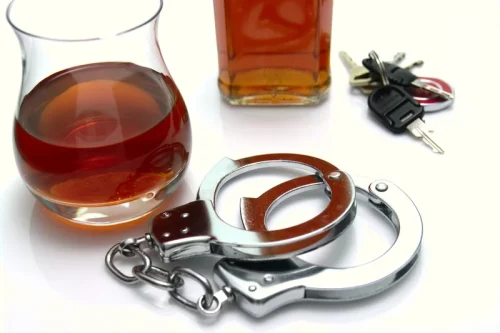
“Any time people change a behavior, our natural gut reaction — literally — is to experience more hunger,” she said. “There’s the boredom factor and the reward factor,” Witkiewitz added, “And food is a very accessible, natural reward.” “And it looks for what it has in its environment, which is so often sugar.” Her fields of interest include Japanese translation, cooking, natural sciences, sex positivity, and mental health, along with books, books, and more books. In particular, she’s committed to helping decrease stigma around mental health issues.

Why do people crave sugar when cutting alcohol?
If you drank a glass of wine at exactly 5pm every night, prepare to have something delicious and hydrating at that time. Have snacks on hand such as dates & almond butter, popcorn, yogurt & berries or granola, dried fruit, fresh fruit, a smoothie, popsicle, seltzers, teas, kombucha. Our primitive ancestors sought out sugary food because they are higher in calories, needed for survival. These days, we don’t have to hunt and gather for food, its much more accessible. But the urge typically fades, and there are strategies to handle it in the meantime. Certain antidepressants also show promise for helping reduce drinking when you live with depression.
Understanding Protracted Withdrawal Symptoms
Seeking professional support is crucial for managing sugar cravings in recovering alcoholics to ensure long-term recovery and overall well-being. When sugar cravings become problematic and start affecting overall well-being and recovery from alcohol addiction, it is recommended to seek professional help. Various treatment options and resources are available, including evidence-based approaches tailored to individual needs, why do alcoholics crave sugar to effectively address sugar cravings and maintain sobriety [3]. When it comes to understanding the connection between alcohol addiction and sugar cravings, several nutritional factors come into play. These factors contribute to the intense desire for sugar that many individuals in alcohol recovery may experience. Two key nutritional factors to consider are the depletion of nutrients and blood sugar imbalances.
Tips For Supporting Loved Ones Who Are Recovering From Addiction
In addition to increased sensitivity to sweet tastes, alcoholics also tend to have a preference for sweet drinks. This preference can be attributed to the effects of alcohol on the brain, specifically increasing the desire for sweet and high-fat foods. As a result, alcoholics may engage in overeating and consume higher calories, primarily from sweet foods and beverages.
- Those struggling with alcohol dependence tend to crave sugar because both have a similar effect on the brain.
- The key is to recognize these cravings and have a plan in place to handle them.
- Explore powerful delirium tremens treatment strategies and support to conquer addiction’s storm.
- However, it’s crucial to develop effective strategies to deal with these cravings, as they can lead to relapse if not properly addressed [3].
- Sugar is also rewarding to the brain and is a quick fix, just like alcohol was.

“A typical craving might last for 3 to 5 minutes,” notes Christina Hanks, senior recovery coach and care team manager at Tempest. When a craving for alcohol strikes, a good first step involves acknowledging the craving, according to Mehta. She goes on to explain that while the craving might be intense, it will lessen and pass in a few minutes. Over time, alcohol use begins to affect the neurotransmitters, or chemical messengers, in your brain.
- Discover the key qualities of the best rehab centers, from impactful treatment to accredited facilities and expert staff.
- Alcohol is a concentrated source of calories, and when it is eliminated from the diet during recovery, the body may seek alternative sources of energy.
- One way to do this is to identify this loop and then build new routines to break the cycle.
Understanding and addressing these psychological factors is essential in breaking the cycle of alcohol use disorder and sugar cravings. Seeking professional help, such as therapy or counseling, can provide valuable support in addressing emotional regulation and developing healthier coping mechanisms. Another important aspect of recovery is managing the sugar cravings that often come with alcohol recovery.
The Relationship Between Alcohol and Sugar Cravings
This activation of the reward system can provide a sense of pleasure and satisfaction, temporarily filling the void left by the absence of alcohol. As a result, individuals in alcohol recovery may find themselves turning to sugary foods and drinks to compensate for the lack of alcohol-induced dopamine release. When a person with AUD stops consuming alcohol, their brain may seek other sources of dopamine stimulation. Given that sugar intake can trigger dopamine release, it is common for recovering alcoholics to turn to sugary foods to satisfy this craving. A balanced diet can help individuals manage sugar cravings, maintain a healthy weight, and improve overall well-being. When it comes to managing sugar cravings, it’s important to focus on consuming a diet rich in lean proteins, whole grains, fruits, vegetables, and healthy fats.

We may find relief in these other behaviors because they are triggering the same reward center of the brain. When someone quits drinking alcohol (chronic use), the body will search for dopamine https://ecosoberhouse.com/ in other ways. Addictions are physically and mentally consuming and I recommend working with different behavioral health practitioners to get to the root of your individual addiction patterns.
What is Drug Therapy


